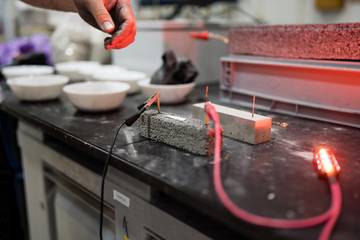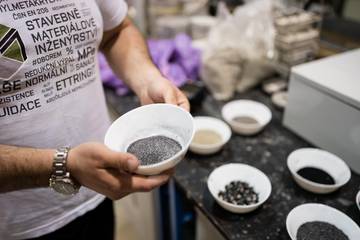A new concrete conducts electricity and does not freeze
The material of the future will be tested in real conditions this winter. Carbon-based components are an important part of the composite, which, thanks to its conductivity, heats up slightly and prevents frost formation.
In practice, the new material could be used for places where the risk of icing is higher than elsewhere - bridges, footbridges, bus stops or airports. "In practice, it will work by making building parts made from our composite self-controlled with respect to temperature, but also dew point. The key is that frost does not form at all," explains Jindřich Melichar from the research team. Scientists from the Institute of Technology of Building Materials and Components are collaborating with BETOSAN company on the project. The principal person responsible for the project is Rostislav Drochytka, dean of our faculty.
The first idea was conceived five years ago while working on another project with a similar problem. At that time, metals used for earthing, which are expensive, needed to be replaced with silicate materials. "We started developing concrete that conducts current because normal concrete is an insulator. This gave us an insight into the electrical conductivity of silicate building materials, and on that occasion we discovered that the material heats up," says Melichar, adding: "In the current project, we are developing a material that must have good electrical conductivity in order to be heated by an low electric current."
Experts can connect the concrete structure or area to a weather monitoring control unit that puts very low current on the concrete. This is what allows the concrete to warm up. The control unit is fully autonomous and its main job is to make sure that frost doesn't even form.
| Short link | https://www.fce.vutbr.cz/en/research/achievements/345 |
|---|---|
| Responsible person | Mgr. Almíra Pitronová |
| Published |

